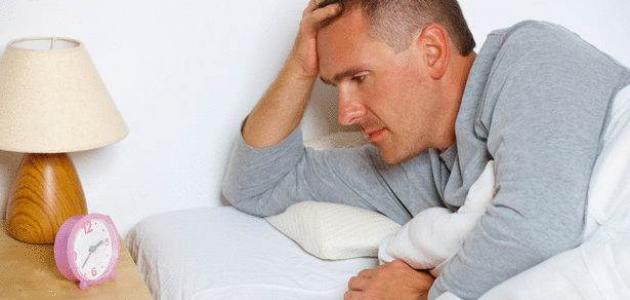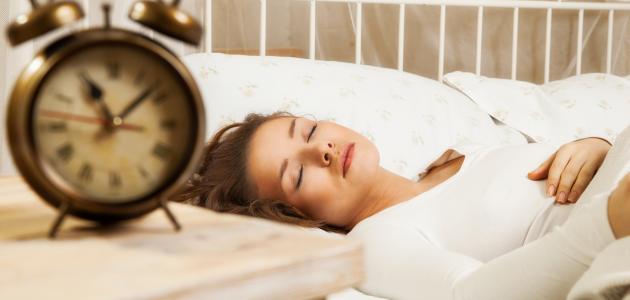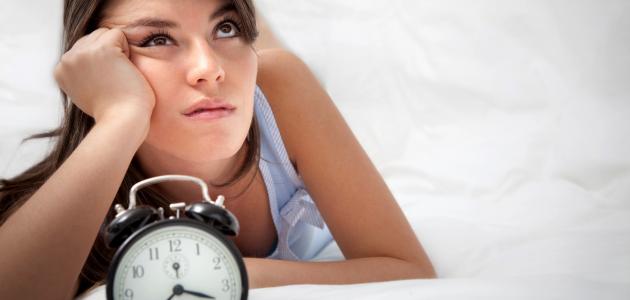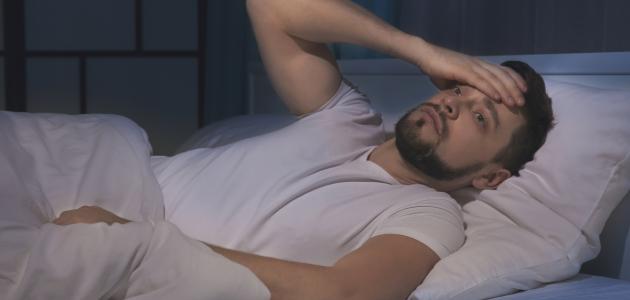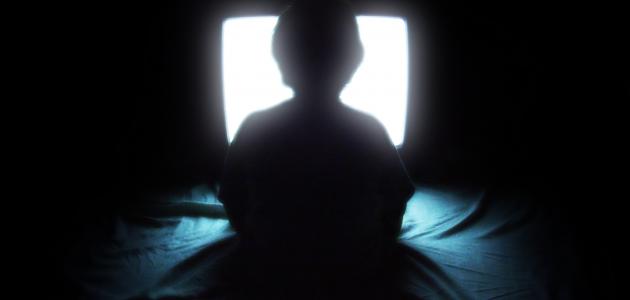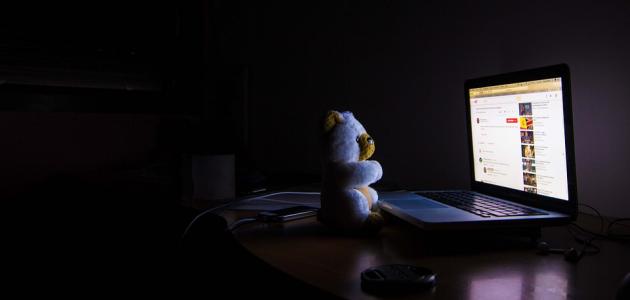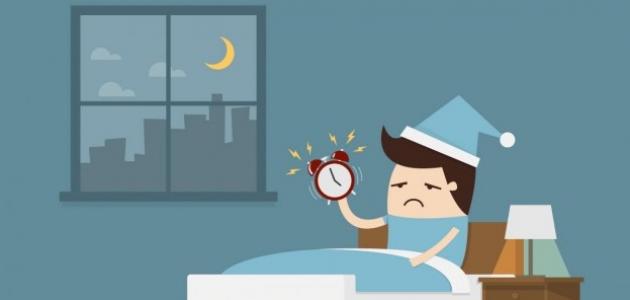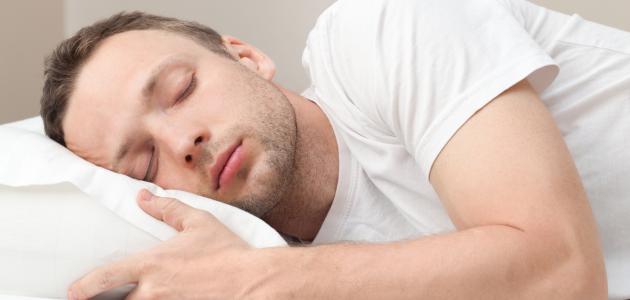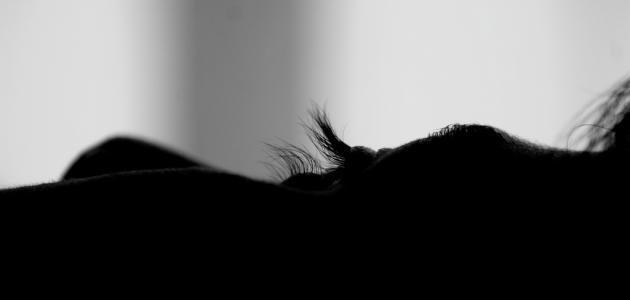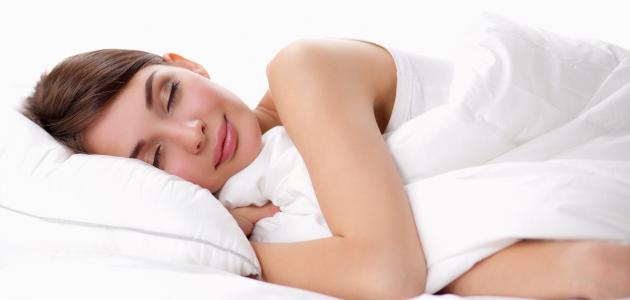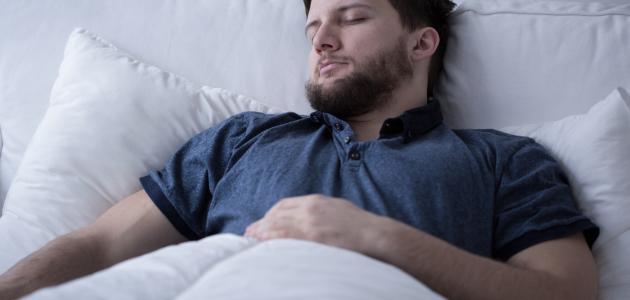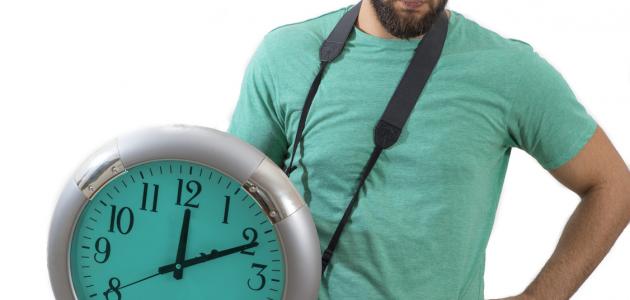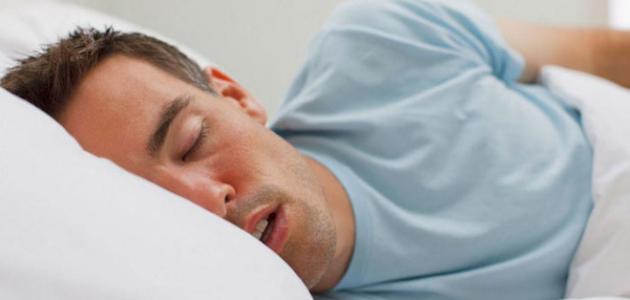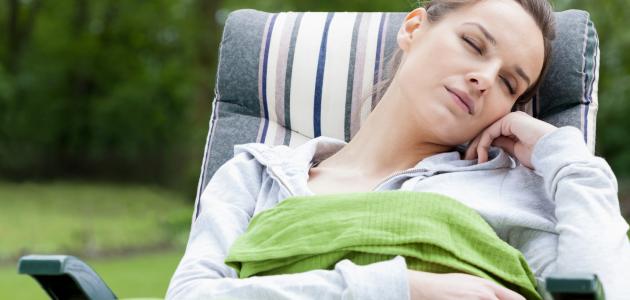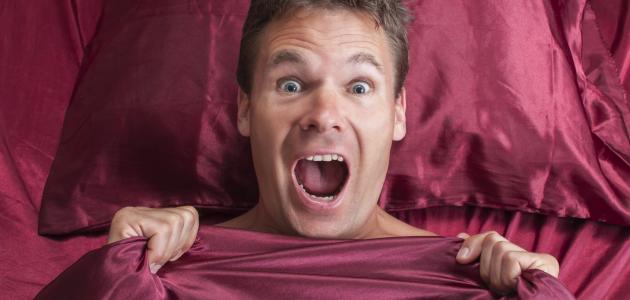Contents
Sleep
He says: ( And among His signs sleep that ye take the night and day and Aptgaakm of bounty in that are Signs for those who hear), [1] God Almighty is familiar to the human body and its needs, Sleeping is one of the most important blessings and greatest of us, and knows sleep as a state of unconsciousness increase the The brain's response to internal stimuli instead of external, and this state is reactionary and cyclical, which distinguishes sleep from loss of consciousness, and it gradually starts from losing response to visual, auditory and other stimuli, until a person transforms from a state of awakening to a state of sleep, which is known as the first stage of sleep. [2]
"Sleep is not a manifestation of luxury," said Dr. James Brian. The brain needs (7-8) hours of sleep in order to perform its normal functions, [3] and sleep
is of great importance in helping to treat damaged cells and maintain the immune system and rest from the burdens of the day To charge the energy needed for the work of the heart, veins and arteries. [4]
Failure to get enough sleep leads to feelings of fatigue and exhaustion, which may affect the safety of the individual, especially while driving and using sharp machines, as the risk of accidents is greater, and there are other consequences of lack of sleep such as irritable mood and lack of motivation in addition to it may lead to Reducing the respiratory response to an increase in carbon dioxide and a lack of oxygen in healthy people, and a lack of response to these changes may lead to a deterioration in the functioning of the respiratory system for people who suffer from difficulty breathing during sleep, chronic lung disease, and obesity. [5]
In adolescence, a person needs longer hours of sleep compared to the number of hours required for an adult, and the biological clock of adolescents works to keep them awake until late in the evening and wake them up late in the morning, unlike the elderly who start to feel sleepy early in the evening They may be sufficient for hours less than what an adult person needs in order to perform their tasks, but the elderly suffer from interrupted sleep and thus the amount of sleep at night decreases, but its importance is not less, unlike what some believe. [6]
The definition of insomnia
Proper sleep begins twelve to twenty minutes after bedtime and continues for seven to eight hours - it may be a little longer or short - and it must be continuous. [7] But when a person needs a longer time to fall asleep, or continues to wake up at night repeatedly, or even when he wakes up very early in the morning for no reason with suffering from poor and light sleep quality, and this problem continues despite the availability and creation of the appropriate atmosphere for sleep , affecting the normal work of man and his life during the day you know the problem when it insomniac . [8]
Insomnia has two types:
- The first type affects a person for a short period and may disappear gradually without medical intervention by following healthy sleep methods, but if the problem becomes a cause for concern and it is not possible to continue working during the day, then it is necessary to see a doctor who will prescribe the appropriate medicines to solve the problem and reduce fatigue and exhaustion during the day, but it must be emphasized to avoid Over-the-counter medications for insomnia, which can cause side complications. [9]
- Chronic insomnia, which is the second type, so its treatment is by treating the cause, and if it continues after that, the doctor prescribes a behavioral treatment for the patient in which he searches for causes and triggers for insomnia and limits them and helps him to practice activities that aid sleep, which we will mention later. [9]
Insomnia symptoms
Insomnia may cause the following symptoms:
- Feeling sleepy and needing to sleep during the day. [9]
- Fatigue and tiredness. [9]
- Problems with memory and concentration. [9]
- Increase in accidents and errors during work. [10]
- Malaise, depression, and anxiety. [10]
Causes of insomnia
In the past, insomnia was defined as a secondary problem related to a physical or psychological illness or as a result of taking a certain drug, but the facts have proven for 20 years that insomnia is an independent disorder in itself that a person may suffer from with or without accompanying causes of the disease, and insomnia disorder may continue even after Successfully treating these causes, and may lead to delayed treatment of some diseases and worsening them, and therefore treatment of insomnia leads to help in improving and treating the associated diseases. [11]
Causes and health problems that lead to insomnia:
- Certain diseases such as heart disease, diabetes, excessive thyroid hormone secretion, chronic pain, cancer and others [10]
- Some mental and neurological diseases such as anxiety disorder or post-traumatic stress disorder, and waking up too early may be without signs of depression. [10]
- Difficulty breathing , which occurs as a result of sleep apnea and may occur repeatedly, and this means that the brain and other parts of the body do not get enough oxygen, and it can be inferred by the sound of loud snoring, headache when waking up, and other symptoms. [12] [13]
- Medicines such as antidepressants, medicines for chest crisis, high blood pressure, and some over-the-counter medicines, such as those used to treat colds and obesity, as medicines and preparations may contain a high level of caffeine, which leads to insomnia. [10]
Healthy practices to get rid of insomnia
Among the practices and behaviors that help get rid of insomnia:
- Stay away from anxiety and overthink problems and worries before bed, and a daily diary can be used to write your plans for the next day to avoid anxiety. [14]
- Choose a quiet place, a comfortable bed, suitable lighting for sleeping, and avoid noise, so that you can use headphones to solve this problem. [15]
- Avoid drinking drinks that contain a high percentage of stimulants (such as: coffee, tea, and soft drinks ) late in the day, and if the person is a smoker, he should avoid smoking in the evening as well. [9]
- Waking up at night and not being able to return to sleep is one of the symptoms of insomnia, but if the individual is unable to return to sleep within a period ranging (15-20) minutes, he must get out of bed and go to another room to do an activity that helps him relax such as listening to music or reading and then Return to bed only after feeling sleepy and tired. [6]
- Following a specific bedtime routine such as taking a warm bath, listening to soothing music, writing and drawing [9]
- Don't go to sleep feeling hungry. [14]
- The practice of sport but not before bedtime, but an interval ranging from three to four hours. [9]
- Avoid using the phone and reading from electronic screens for a long time before bed. [9]
Insomnia treatment
Cognitive-behavioral therapy
Cognitive-behavioral therapy is the first method used to treat insomnia. It helps get rid of negative thoughts and behaviors that lead to insomnia, and there are many examples of it, including: [10]
- The relaxation method, which relies on muscle massages to help them relax, in addition to breathing exercises to reduce tension, and this method helps control heart and breathing, improves mood and reduces muscle tension. [10]
- Control the stimulus, as in some cases, the cause of insomnia is the brain being used to staying awake in the room or bed as a result of spending a lot of time there and practicing activities in them, so the treatment is by not going to bed until 20 minutes before going to sleep and not staying in the room if you cannot sleep after this Limit sleep during the day and set an alarm to wake up in the morning even on holidays. [14]
- Light therapy is used in cases that suffer from drowsiness, sleep early and wake up very early, and is done by exposure to sunlight before sunset if this is appropriate or by using light designed for such cases but after consulting a doctor. [10]
- The opposite or paradoxical treatment, by going to bed and trying to stay awake instead of expecting or waiting for falling asleep. The idea of this treatment is that it reduces stress and the constant thinking of not being able to sleep. [10]
- A program to reduce sleep hours, as it regulates sleep hours, and begins by allowing a person to sleep for a few hours, then gradually increasing them until the number of hours needed is reached. [16]
Medicines treatment
The radical solution to the problem of insomnia is by treating the cause and adopting healthy sleep methods, and resorting to sedative and hypnotic drugs is a final and short-term solution using the lowest effective dose. Because these substances and drugs do not treat the main cause and have many side effects, including psychological habituation to them with the loss of their effectiveness after a period of time. [11] [17] Among the drugs used to treat insomnia are antihistamines, benzodiazepines, antidepressants , and hormonal therapy using melatonin, but these drugs are only prescribed by prescription and under the supervision of the doctor himself. [11]
References
- ↑ Surah Al-Rum, Verse 23:
- ↑ M suzanne Stevens, MD, MS, DA (2015-12-5), “Normal Sleep, Sleep Physiology, and Sleep Deprivation” , medscape , accessed on 20-5-2017.
- ↑ anne field (2009-1-14), “Why Sleep Is So Important , ” https://hbr.org/ , accessed 5-20-2017.
- ↑ Morselli L'(2010-5-24), "Why Is Sleep important 's ?" , Resmed , briefed him on 20.05.2017.
- ↑ M. Safwan Badr (2013-1-1), “Normal Sleep Physiology and Its Assessment” , clinicaladvisor , accessed on 5-20-2017.
- ^ A b Melinda Ratini, the DO, the MS (2015-1-2), " the Sleep Disorder Myths" , WebMD , briefed him on 05.09.2017.
- ↑ Chris Bojrab MD (2015-11-20), "? Treating Insomnia: What Are Benefits and Risks of Hypnotics" , American Psychiatric Association , accessed 5-10-2017.
- ↑ michael H Bonnet, PhD Donna L Arand, PhD (2012-9-28), "Overview of insomnia" , uptodate , accessed 5-9-2017.
- ^ A b t w c h x d y of Neha Pathak, MD (2017-1-17), "An Overview The Of Insomnia" , WebMD , Retrieved 2017-5-9.
- ^ A b t w c h x d y Sandhya Pruthi, MD (2016-10-15), "Insomnia" , Mayoclinic , briefed him on 20.05.2017.
- ^ A b v Michael the H Bonnet, : PhD, L'Arand , Donna, : PhD (2013-1-16), "Treatment Of Insomnia" , Uptodate , Retrieved 2017-5-9.
- ↑ William Blahd, MD (2016-9-6), "Sleep Apnea" , webmd , accessed 5-9-2017.
- ↑ Michael H Bonnet, PhD Donna L Arand, PhD (2013-2-4), "Insomnia Patient information: Insomnia (Beyond the Basics)" , uptodate , Retrieved 2017-5-9.
- ^ A b v Michael the H Bonnet, L'Arand , Donna : PhD, : PhD (2013-1-21), "Insomnia Treatments Patient Information: Insomnia Treatments (Beyond The Basics" , Uptodate , Retrieved 2017-5-9.
- ↑ The medical team for the encyclopedia (10-10 2012 ), “How to go to sleep” , the King Abdullah Bin Abdulaziz Arabic Encyclopedia of Health Content , read it on 5-9-2017.
- ↑ The medical team of the encyclopedia (2012-11-14), “Sleeping pills , ” for the King Abdullah bin Abdulaziz Arabic Encyclopedia of Health Content , Retrieved 2017-5-9.
- ↑ The medical team for the encyclopedia (2/2016), “Insomnia” , King Abdullah Bin Abdulaziz Arabic Encyclopedia of Health Content , Retrieved 2017-5-9.
